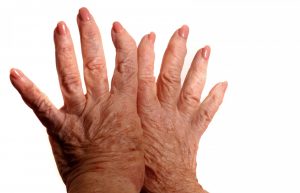Each week, Dr. Mauk shares thoughts relevant to Baby Boomers that are aimed to educate and amuse.
Alzheimer’s Disease
Alzheimer’s disease (AD) is the most common type of dementia seen in older adults. An estimated 5.4 million Americans of all ages had Alzheimer’s disease in 2012. Nearly half (45%) of people over the age of 85 have AD. By 2050, the number of individuals age 65 and over with Alzheimer’s could range from 11 million to 16 million unless science finds a way to prevent or effectively treat the disease. One in eight older adults has AD, and it is the sixth leading cause of death in the United States (Alzheimer’s Association, 2012). Those affected with AD may live from 3–20 years or more after diagnosis, making the life span with this disease highly variable.
Risk factors
Advanced age is the single most significant risk factor for AD (Alzheimer’s Association, 2012). More women than men have AD, but this is because women live longer than men, not because gender is a risk factor. Family history and heredity are also identified risk factors for AD, as are head trauma and poor cardiac health.
Warning Signs
Alzheimer’s disease is characterized by progressive memory loss. The person affected by AD is gradually less able to remember new information and memory lapses begin to affect daily function. It is a terminal disease that over its course will eventually leave a person completely dependent upon others for care.
Diagnosis
Initially, the clinical progression of the disease is slow with mild decline; however, deterioration increases the longer the person lives, with an average life span of 8 years after diagnosis (Cotter, 2002; Fletcher, Rapp, & Reichman, 2007). The underlying pathology is not clear, but a growth of plaques and fibrillary tangles, loss of synapses, and neuronal cell loss are key hallmarks of AD that interfere with normal cell growth and the ability of the brain to function. Absolutely definitive diagnosis is still through autopsy, although clinical guidelines make diagnosis easier than decades ago when less was known about the disease. Primary care physicians generally make the diagnosis through a thorough history, physical exam, cognitive testing, and labs. New criteria for diagnosis include staging the disorder and biomarkers (beta amyloid and tau in the cerebrospinal fluid and blood) (Alzheimer’s Association, 2012b). An MRI of the brain may be ordered to rule out other causes of symptoms.
The clinical course of AD is divided into several stages, depending on the source consulted. In the early course of AD, the person may demonstrate a loss of short-term memory. This involves more than common memory loss, such as where the keys were put, and may involve safety concerns such as forgetting where one is going while driving. The inability to perform math calculations and to think abstractly may also be evident. In the middle or moderate phase, many bodily systems begin to decline. The person may become confused as to date, time, and place. Communication skills become impaired and personality changes may occur. As cognitive decline worsens, the person may forget the names of loved ones, even their spouse. Wandering behavior as well as emotional changes, screaming, delusions, hallucinations, suspiciousness, and depression are common. The person with AD is less able to care for her- or himself and personal hygiene suffers. In the most severe and final phase, the person becomes completely dependent upon others, experiences a severe decline in physical and functional health, loses communication skills, and is unable to control voluntary functions. Death eventually results from body systems shutting down and may be accompanied by an infectious process. Although there is no single test, and the diagnosis may be one of exclusion, early diagnosis is important to maximize function and quality of life for as long as possible. Persons experiencing recurring and progressing memory problems or difficulties with daily activities should seek professional assistance from their physician.
Treatment
Treatment for AD is difficult. There are several medications (such as Aricept, Namenda, Razadyne, and Exelon) that may help symptoms (such as memory), but they do not slow the course of the disease. There is currently no cure; however, research continues to occur in pharmacology, nonpharmacology, and the use of stem cells to manage symptoms and perhaps one day eradicate the disease.
Treatment will focus on symptom management, particularly in the areas of behavior, safety, nutrition, and hygiene. Behavioral issues such as wandering and outbursts pose a constant challenge. Many long-term care facilities have special “memory care” units to care for Alzheimer’s patients from the early to late stages of the disease. These units provide great benefits such as consistent and educated caregivers with whom the patient or resident will be familiar, a safe and controlled environment, modified surroundings to accommodate wandering behaviors, and nursing care 24 hours a day. Additionally, nurses are present to manage medications and document outcomes of therapies. However, many family members wish to care for their loved ones at home for as long as possible.
Thus, another important aspect of care in AD is care for the caregivers. Howcroft (2004) suggested that “support from carers is a key factor in the community care of people with dementia, but the role of the caregiver can be detrimental to the physical, mental, and financial health of a carer” (p. 31). She goes on to say that the caregivers of persons with AD would benefit from training in how to cope with behaviors that arise in these patients and how to cope with practical and legal issues that may occur.
Research has shown that ongoing skills are needed by family caregivers to deal with the progressive decline caused by AD. In fact, “a 63% greater risk of mortality was found among unpaid caregivers who characterized themselves as being emotionally or mentally strained by their role versus noncaregivers” (National Conference of Gerontological Nursing Practitioners & National Gerontological Nursing Association, 2008b, p. 4). Adapting to stress, working on time management, maximizing resources, and managing changing behavior were all skills caregivers needed to develop in order to successfully manage home care of their loved ones. When interventions and resources were not used by caregivers in the early stages of the care recipient’s AD, the risk of a healthy patient being institutionalized due to caregiver burden was higher (Miller, Rosenheck & Schneider, 2012). Caregivers needed not only to acquire knowledge and skills, but also to make emotional adjustments themselves to the ever-changing situation.
Such findings suggest that nurses should focus a good deal of time on educating caregivers of persons with AD to cope with, as Nancy Reagan put it, “the long good-bye.” Scientists continue to explore the causes of AD and hope in the near future to be able to isolate the gene that causes it. In the meantime, results from a fascinating longitudinal study (called the Nun study) on aging and AD, which used a group of nuns who donated their brains to be examined and autopsied after death, has suggested that there is a connection between early “idea density” and the emergence of AD in later life. That is, essays the nuns wrote upon entry to the convent were analyzed and correlated with those who developed AD. It was found that those with lower idea density (verbal and linguistic skills) in early life had a significantly greater chance of developing AD (Grossi, Buscema, Snowdon, & Antuono, 2007; Snowdon, 2004). The nun study has allowed researchers to examine hundreds of brains so far in nuns who died between 75 and 107 years of age and discover other important facts such as a relationship between stroke and the development of AD in certain individuals, and the role of folic acid in protecting against development of AD (Snowdon, 2004). Scientists from a number of fields continue to research the causes and possible treatments for AD and the Nun study project is continuing at the University of Minnesota. Snowdon’s research suggests that early education, particularly in verbal and cognitive skills, may protect persons from AD in later life.
Adapted from Mauk, K. L., Hanson, P., & Hain, D. (2014). Review of the management of common illnesses, diseases, or health conditions. In K. L.
Mauk’s (Ed.) Gerontological Nursing: Competencies for Care. Sudbury, MA: Jones and Bartlett Publishers. Used with permission.






